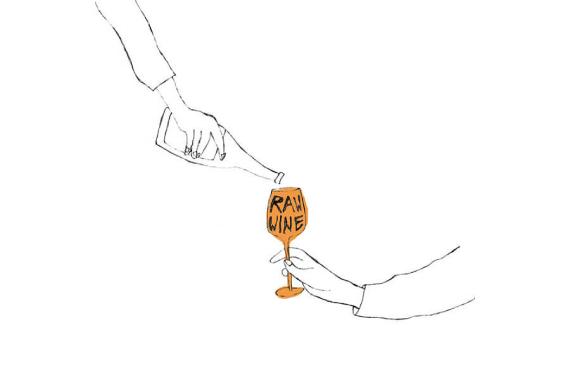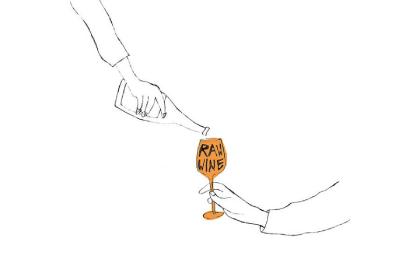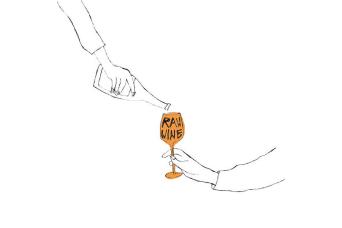Certified
Uncertified
Type
Grower, Maker



Certified
Uncertified
Type
Grower, Maker
About the winery – Lingenfelder Estate: - ~ 500 years of wine making tradition in the family - 13 ha with vineyard sites in Freinsheim and Großkarlbach o Tertiary Limestone in Großkarlbach on the rift shoulders of the rhine valley (eg. Burgweg in Gkb) o Loess and calcareous sand deposits with clay lenses towards the sedimentary basin (Osterberg in Gkb and Musikantenbuckel in Freinsheim) - Strong focus on local grape varieties with a long tradition in the Pfalz area such as Riesling, Sylvaner, Morio-Muskat, Scheurebe, Grauburgunder, Gewürztraminer, Müller-Thurgau, Spätburgunder, Dornfelder) - Low-intervention winemaking since the beginning, means: o No cultured yeast has ever entered our cellar o No fining agent has ever…. o No clarification treatment… o No enzymes… o No de-/acidification… o Last chaptalization (and only with Dornfelder back in the days) was in 2017 o Medium to low sulfur usage o Cooling only by evaporation -> saves a lot of CO2 - In this consistency over such a long time, in Germany probably unique - Soil- and environment protection always leads our agenda for the vineyard work: o Tractor passages as low as possible ~ 7 in a year o Over the winter, 7 month with no machines in the vineyard o No machine harvesting at all o Leight-weight tractors (good old Fendt 260 – still running like a beast), wide tires o Site-specific permenant vegetation in all rows (except 2015 & 2018 because of the heat) o Philosophy of regenerative agriculture – no till! o No irrigation! o defoliation only by hand o No herbicides and insecticides since ~20 years About my wines – Georg Lingenfelder: o I farm 5 ha of the family vineyards organic since 2021 o As the fields are still part of the family winery they are not certified yet o My parents have a good understanding of responsible farming, however the only point where they don’t follow organic farming rules is with the treatment of downy mildew. They refuse to use copper and use synthetic sprayings for just this fungus… always the same old tune but I can´t convince them to take the next step. o So I have to deal with this disagreement – they have nothing against me using copper – but I can´t get my fields certified yet. Working on taking over the whole winery soon. Generational challenges at its finest :( Single vineyard wines: - Hand picked, wild fermented, no fining, tiny bit of sulfur just before bottling (around 25mg/l) - Skin maceration/fermentation of 2-14days, mostly with stems - Fermentation finished with short sedimentation in mostly old local barriques - No pumping of the wine - Maturation in oak for 12 month on the lees (barrels older than 4 years) - No filtration Cuvees: - Hand picked, wild fermented, no fining, tiny bit of sulfur just before bottling (around 25mg/l) - Partly skincontact (depth and structure) partly direct press (elegance and freshness) - Partly in stainless steel and partly in oak - Short sedimentation before fermentation - More than 12 month on the full lees - No filtration My idea of wine is that the grape juice itself has all ingredients to produce a great wine – the intervention by the winemaker should only make sure that the wine finds the right balance over time and that it gets a broad direction in which it can develop and mature but always with enough space to evolve an own unique character. So I gently try to lead the wine towards my own style, the balance of all individual ingredients and the characteristics of the sun-kissed Pfalz which is of course still considered a cool climate region on a world wide scale. But in the end, Patience and trust in the natural process is the highest virtue for me – and the toughest – as mankind likes to have everything under control. I will always look for solutions to alternating vintage challenges that do not appear in powdered form or as bagged goods – and I don´t think this makes my life harder…just a bit more thrilling. About me: Besides wine, rocks and the structure and history of the earth was always something that drew my attention. So after school I went off for quite a bit of traveling around the globe and started my geology studies. However the vineyards never really let me go completely, so over the time I also used my spare time to work in the family winery. After finishing my Masters in Geology the attraction of home finally got stronger than the passion for rocks so I returned to the Pfalz, worked at home and started the Oenology studies in Geisenheim. Because of a tough time in the family, I wasn’t really able to move away again to gather experience in other wineries, I had to rely on the great foundation of wine making experience in the family (father and grandfather) which strongly shaped my philosophy and approach of wine making. The way we make wine in the family seemed to be outdated and old-fashioned for a while but is exactly where the society is moving in this century – towards authentic and sustainable products. My style then developed through extensive drinking and the exchange with other colleagues and quite a bit of travlling. So this is just the start of my very own journey and I´m glad to be able to share it with you and also walk this journey together!
- Size of their farm: 5 (ha)
- Size of farm under vine: 5 (ha)
- All grapes are dry-farmed. None of the vineyards are irrigated.
- All grapes are harvested manually.


